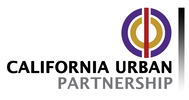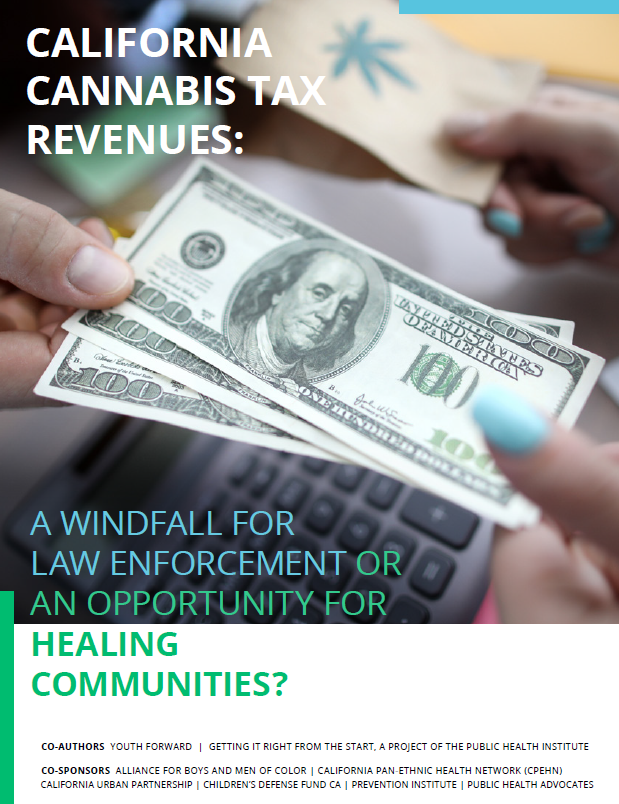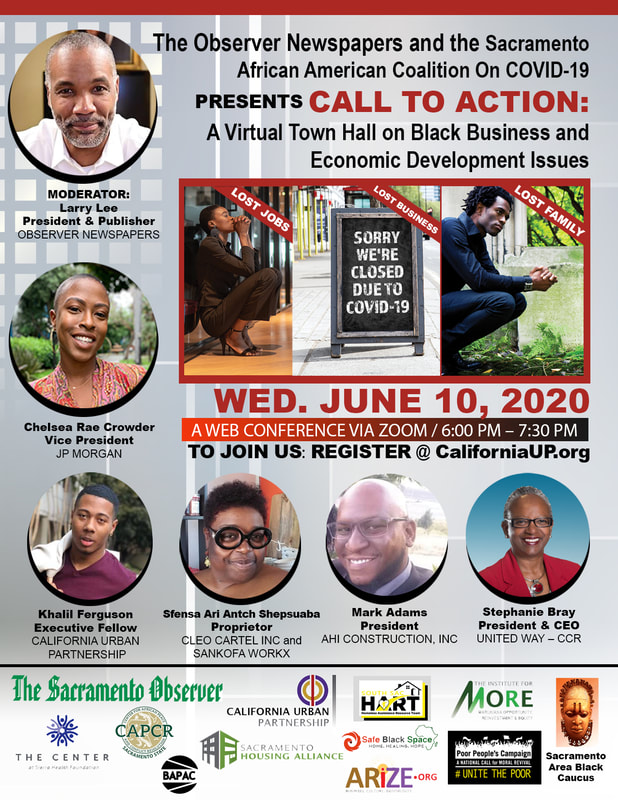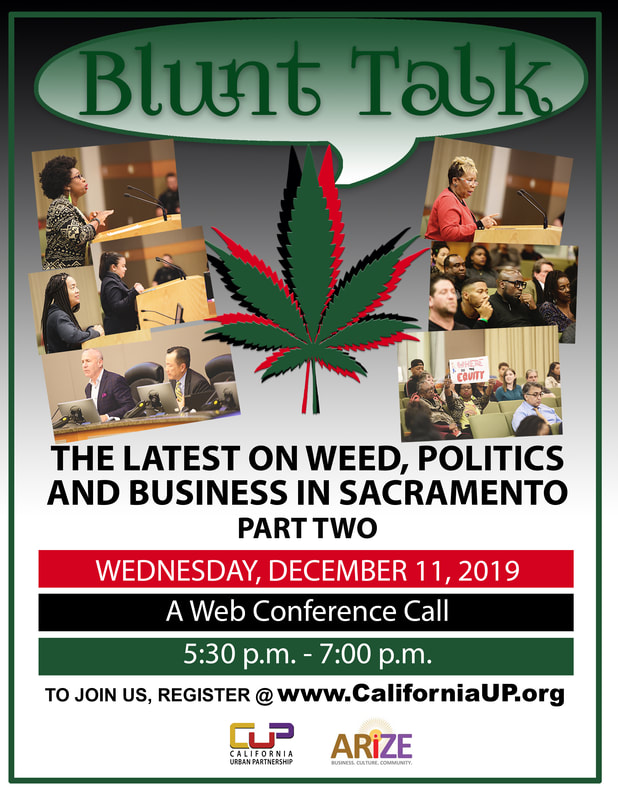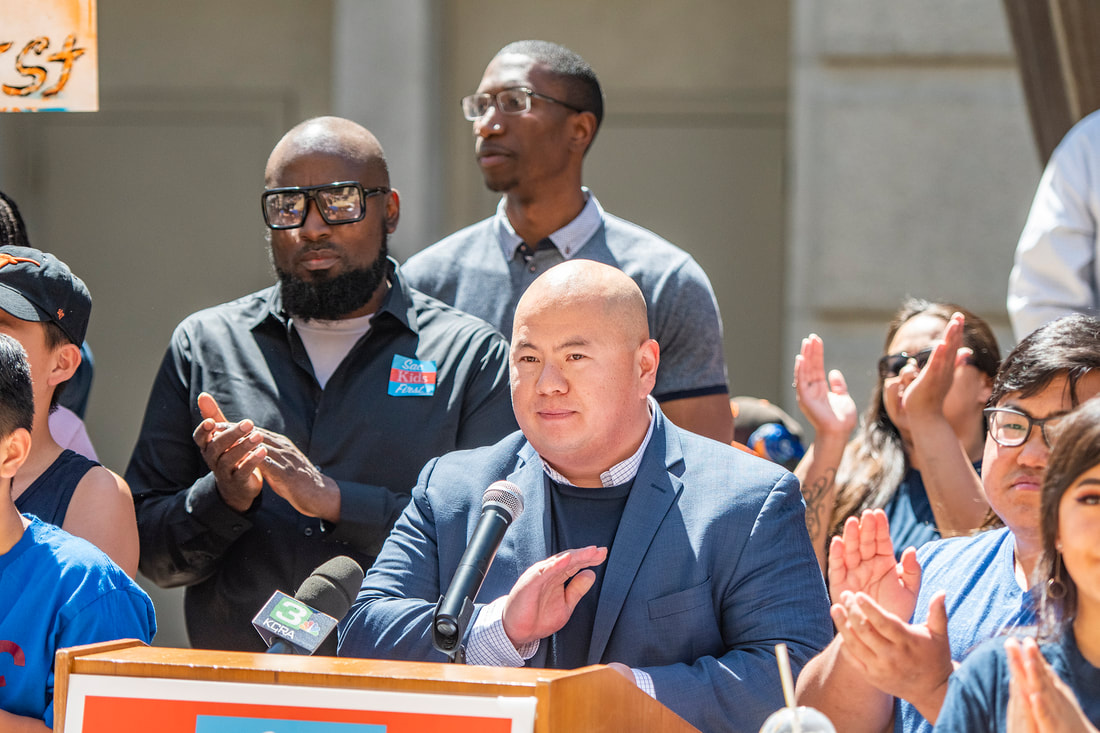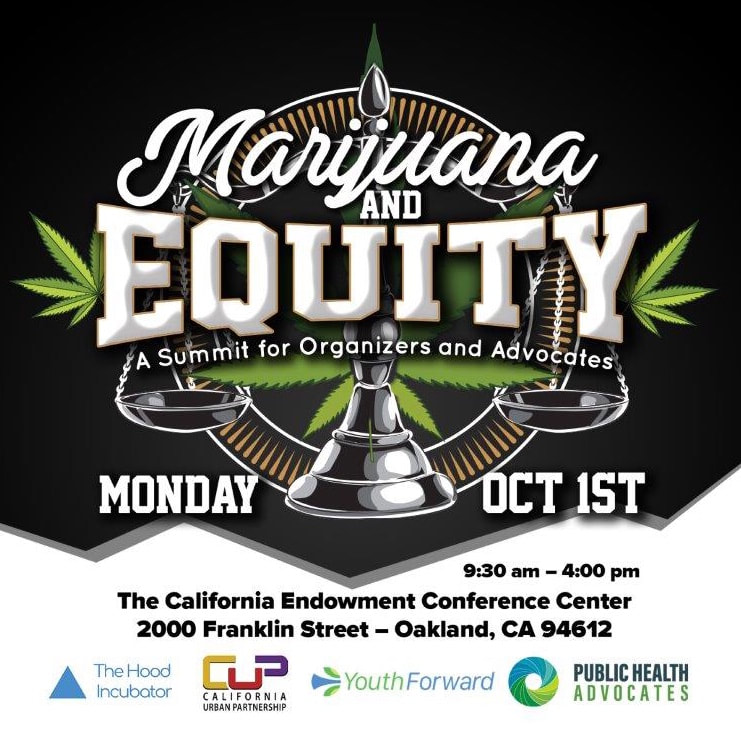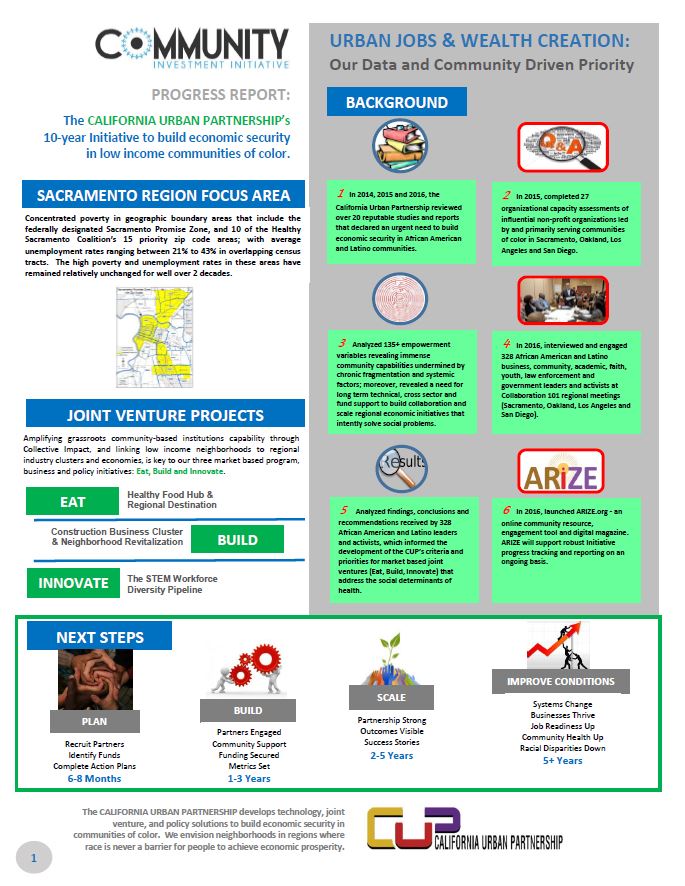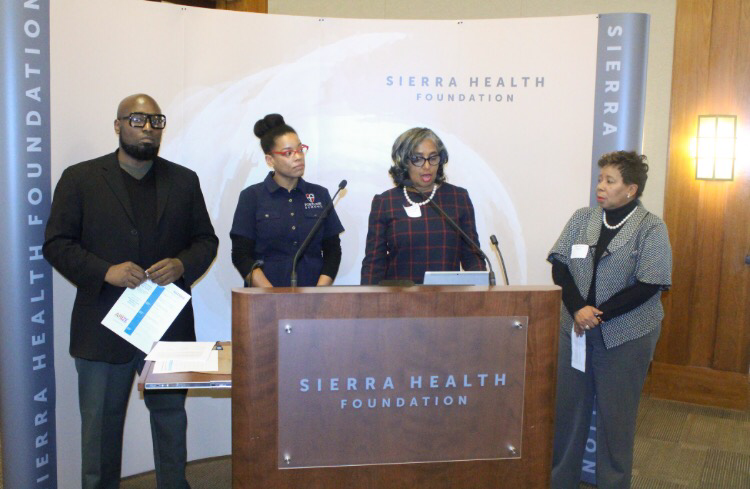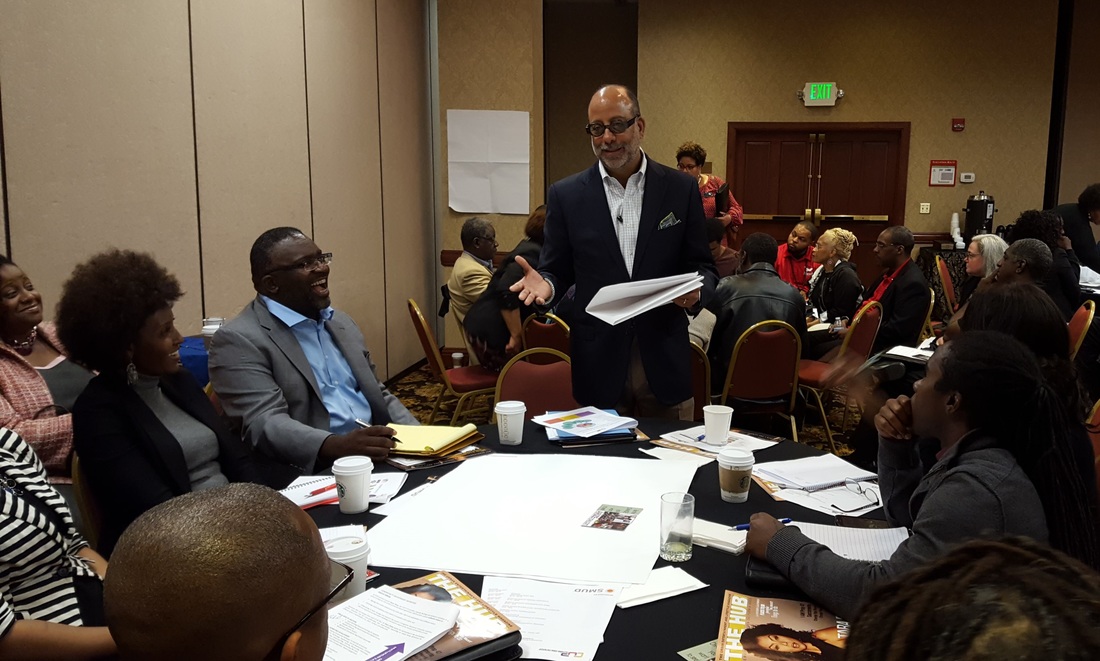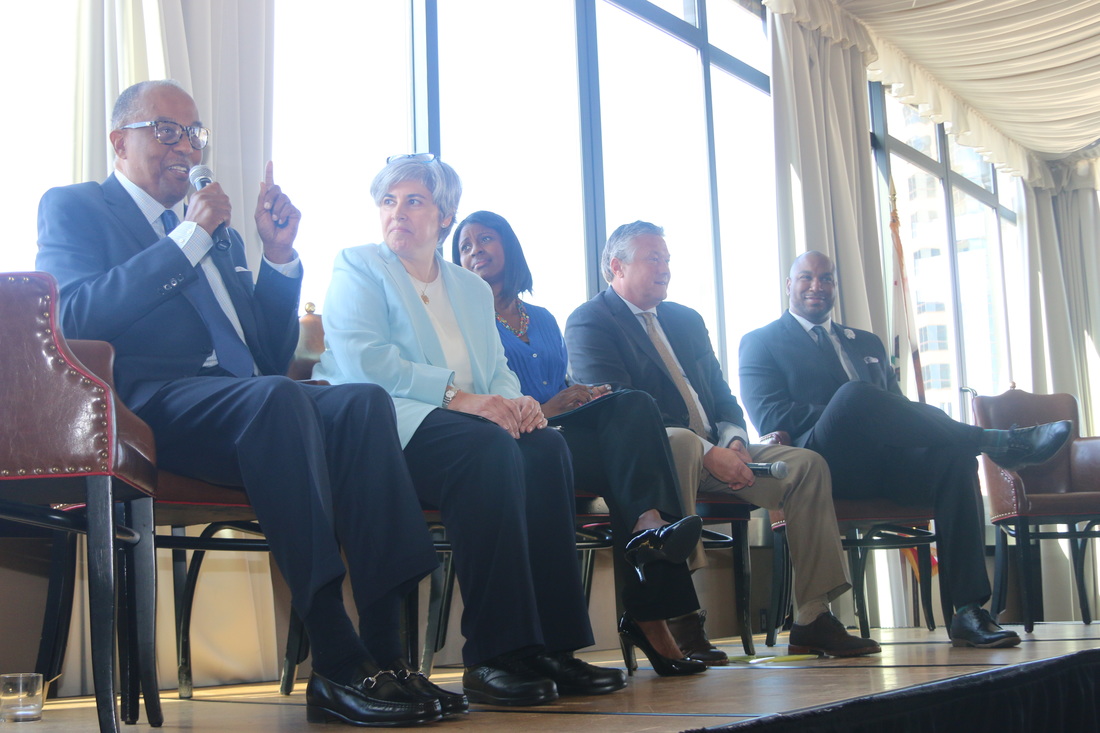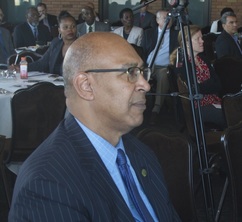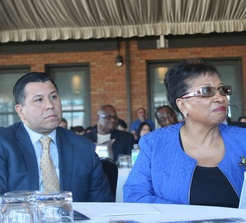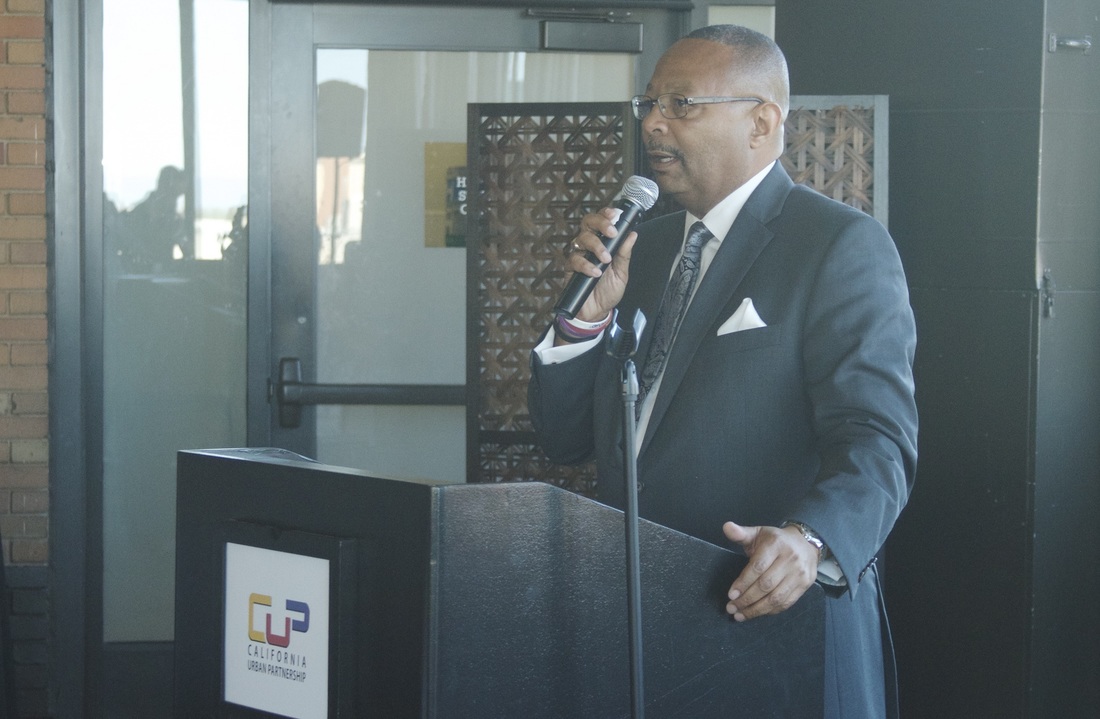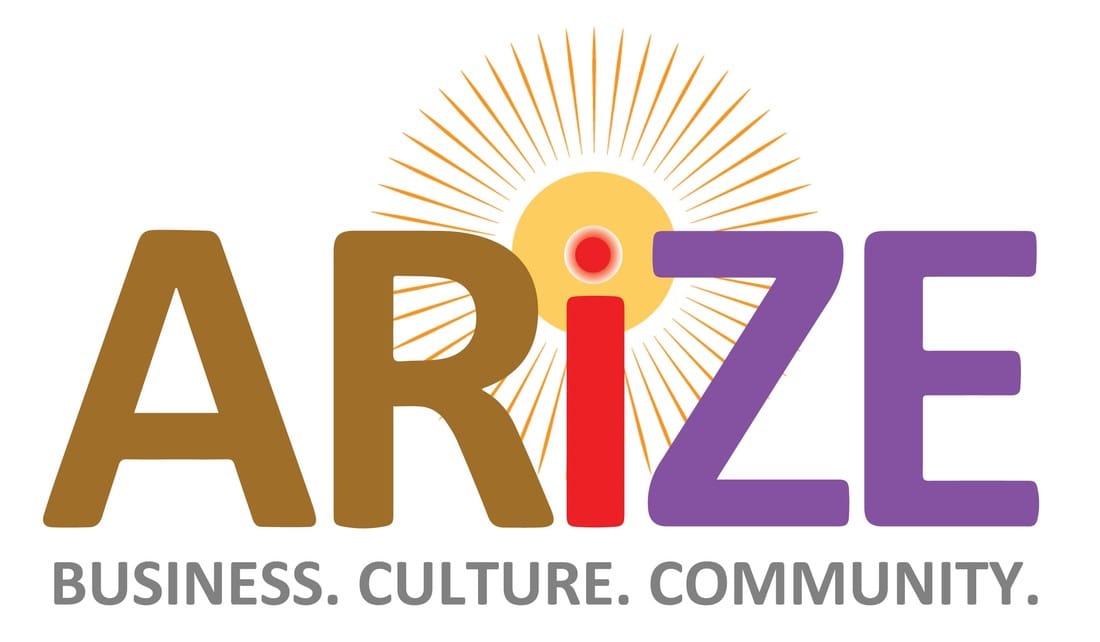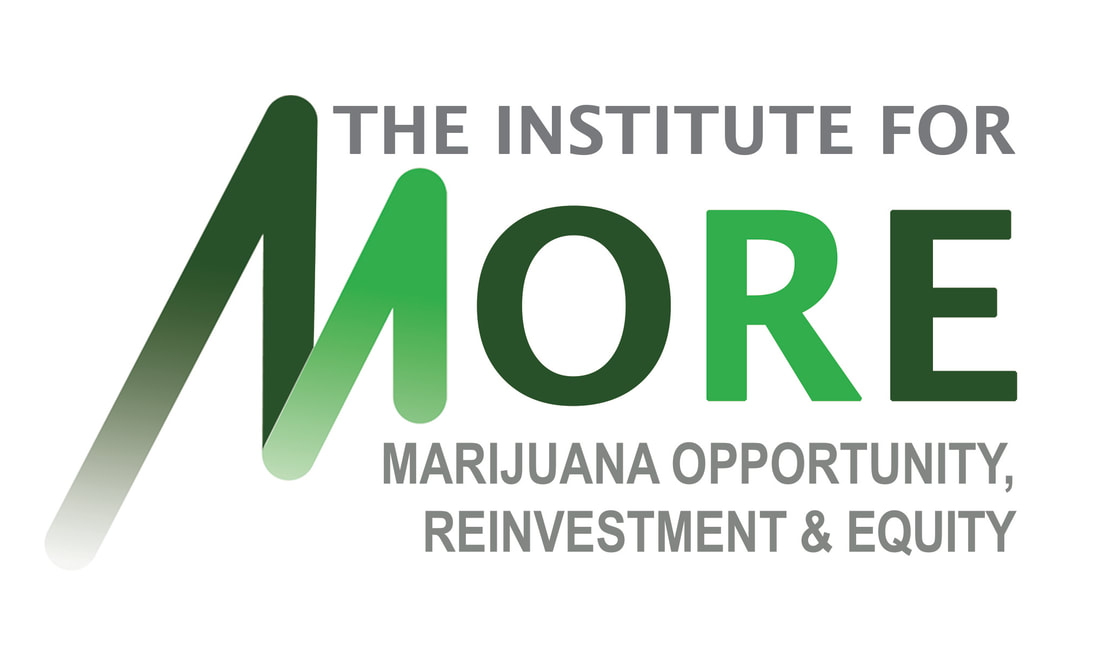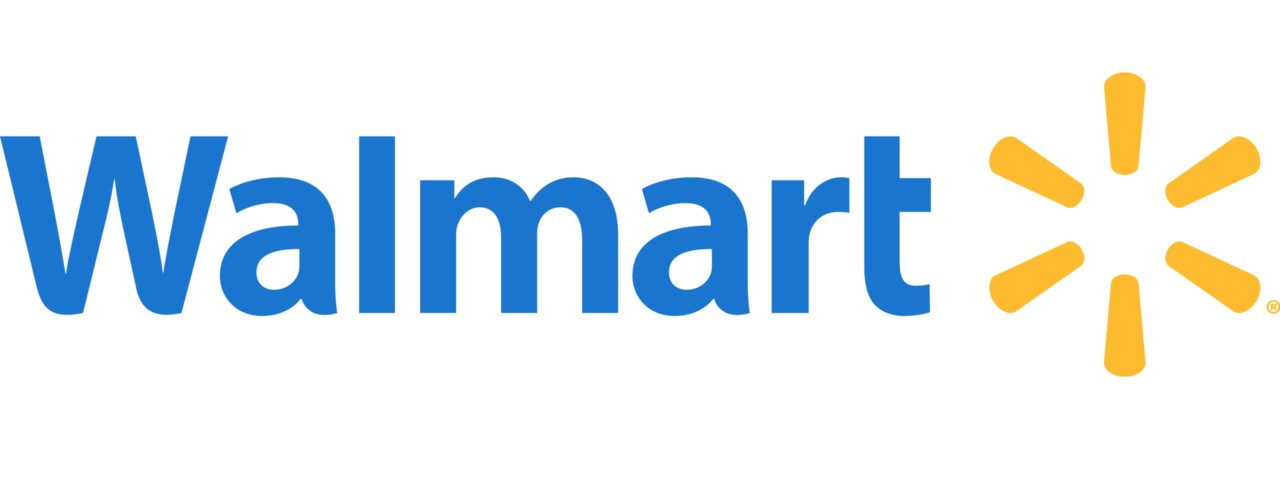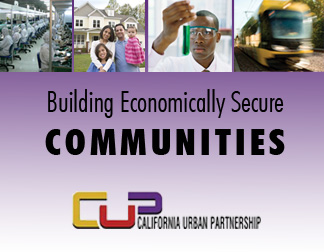EDUCATING, ORGANIZING AND
|
WHEN THE SMOKE CLEARS :::::::: Documentary Film Series And Groundbreaking Reports Highlight Racial Disparities In California's Marijuana Arrests And Tax Revenue Spending Activities
|
|
CALL TO ACTION :::::::: ((( COVID-19 )))
A Virtual Town Hall on Black Business and Economic Development Issues In Sacramento
REGISTER BEFORE THE EVENT. AVOID DELAYS. IT’S EASY AND FREE!!!
COMING UP! BLUNT TALK:
Part 2 - The Latest On Weed, Politics
And Business In Sacramento
REGISTER BEFORE THE CALL. AVOID DELAYS. IT’S EASY AND FREE!!!
REGISTER BEFORE THE CALL. AVOID DELAYS. IT’S EASY AND FREE!!!
MAKING OUR CHILDREN A HIGHER PRIORITY: California Urban Partnership Joined Sacramento Kids First Coalition Signature Gathering Effort
The California Urban Partnership staff was excited to be a part of the Sac Kids First Coalition that collected over 38,000 signatures, and delivered them to the Sacramento City Clerk in order to place the Sacramento Children’s Fund Act for voters to consider in 2020. Winning investments for community-based youth programs, especially those most harmed by the War on Drugs, has been one of the important parts of our mission to build economic security in communities of color.
SACRAMENTO, (CA) - As a part of its work to achieve racial and health equity in marijuana policy, the California Urban Partnership joined the Sac Kids First Coalition help collect over 38,000 signatures during a 5 month period. The Coalition is collected signatures to place a measure on the March 2020 ballot which would require the City of Sacramento to designate 2.5% of its unrestricted revenue, which includes marijuana taxes, to raise about $12 million annually to fund children and youth services. This Children’s Fund would be an early investment of resources for all children but most importantly for the children of traumatized and underserved communities.
SACRAMENTO BUSINESS JOURNAL: Spotlight on Malaki Seku Amen, who negotiated the city’s cannabis equity program
For over a year, the city has worked with community advocacy groups to develop a program to provide opportunities for people affected by aggressive policing of marijuana laws to start businesses in the newly legal cannabis industry. Those efforts came to fruition last week when the Sacramento City Council unanimously approved the Cannabis Opportunity Reinvestment Equity program, or CORE. Malaki Seku Amen, founder of the community development advocacy organization California Urban Partnership, emerged as the lead consultant, negotiator and combatant — depending on the day and the issue — in the effort to see the idea for the cannabis equity program become a reality.
SACRAMENTO REGION PROGRESS REPORT:
|
LEADERS TAKE ACTION ON ECONOMIC DEVELOPMENT PROJECTS AND SOCIAL JUSTICE AT CUP COMMUNITY INVESTMENT SUMMIT IN CAPITOL REGION
The Community Investment Summit brought stakeholders into workgroups focused on building collaboration to strengthen programs, businesses and public policies. Pictured here (left to right) is California Urban Partnership CEO, Malaki Seku Amen, Fortune School CEO, Margaret Fortune, Greater Sacramento Urban League CEO, Cassandra Jennings, and NAACP Sacramento Branch President, Betty Williams.
SACRAMENTO, CA - A solution oriented effort to create jobs and wealth in the Sacramento region’s African American community is moving forward.
On March 24, the Urban Partnership convened over 90 grassroots, business, education, government and elected leaders at its Community Investment Summit. The event advances progress already made to build collaboration, and form a powerful community-driven response to economic inequality and injustice.
Summit Action Teams began a journey focused on completing Action Plans for the following three joint venture project concepts, which are called #EatBuildInnovate :
1. Healthy Food Businesses and Community Arts, Culture and Entertainment (EAT)
2. Construction Business Clusters and Neighborhood Revitalization (BUILD)
3. The STEM Workforce Diversity Pipeline (INNOVATE)
Informed by research and community input, #EatBuildInnovate projects were designed to use economic approaches to solve difficult social problems.
Over the next 6-8 months, the Action Teams will work to move the #EatBuildInnovate Action Plans towards community driven investment and implementation. CLICK HERE TO READ MORE!
Sign Up NOW to Get Updates, Get Involved and/or Donate to support the Community Investment Initiative! CLICK HERE TO SIGN UP!
On March 24, the Urban Partnership convened over 90 grassroots, business, education, government and elected leaders at its Community Investment Summit. The event advances progress already made to build collaboration, and form a powerful community-driven response to economic inequality and injustice.
Summit Action Teams began a journey focused on completing Action Plans for the following three joint venture project concepts, which are called #EatBuildInnovate :
1. Healthy Food Businesses and Community Arts, Culture and Entertainment (EAT)
2. Construction Business Clusters and Neighborhood Revitalization (BUILD)
3. The STEM Workforce Diversity Pipeline (INNOVATE)
Informed by research and community input, #EatBuildInnovate projects were designed to use economic approaches to solve difficult social problems.
Over the next 6-8 months, the Action Teams will work to move the #EatBuildInnovate Action Plans towards community driven investment and implementation. CLICK HERE TO READ MORE!
Sign Up NOW to Get Updates, Get Involved and/or Donate to support the Community Investment Initiative! CLICK HERE TO SIGN UP!
NEXT STEPS FOR COLLABORATION 101 AND THE COMMUNITY INVESTMENT INITIATIVE
Vice President of Legislative & Regulatory Affairs for the Federal Home Loan Bank of San Francisco, Kevin Blackburn, (standing) was a workgroup facilitator at Collaboration 101. His workgroup focused on actions and opportunities to grow businesses and create wealth in Sacramento’s African American community.
COLLABORATION 101 - the Urban Partnership’s 2016 forum (for African Americans in the Sacramento Region) to support long term community program, business and policy SOLUTIONS - was an amazing success.
On April 22, dynamic workgroups of almost 100 local business, community, academic, youth, religious, philanthropic, law enforcement and government leaders focused on economic development, education, health and community organizing strategies.
COLLABORATION 101 - part of the Urban Partnership's Community Investment Initiative process - helps groups of nonprofits to partner on project opportunities and take data-driven ACTION with a shared agenda and measurement systems, connected activities, ongoing communication and support for coordinating their collaborative work (i.e., Collective Impact).
Here are the next steps:
ONE:
Action Teams ( for all ::::: Focus Areas ) will be formed to work on Action Plans for community program, business and policy priorities in 2016. The priorities will emphasize proactive, innovative and sustainable approaches to solving problems.
TWO:
Follow up meetings/forums to present and mold consensus on specific local project opportunities and/or policy issues, will be scheduled. A separate meeting/forum will be held for each Focus Area between July through October, 2016.
THREE:
Action Plans will be completed and compiled in a Playbook. At the March 24, 2017 Community Investment Summit, active partners from all sectors will refine the Playbook and advance the implementation of 2017 program, business and policy initiatives. Priorities for 2018 will also be considered.
See baseline data guiding 2017 projects and priorities here.
COLLABORATION 101 is part of a long term initiative that will increasingly expand the participation of diverse ethnic groups and sectors, as well as strategically align the priorities of all active stakeholders. A focus group approach provides a culturally appropriate and safe environment for communities of interest and trusted allies to freely discuss sensitive issues. It’s also an opportunity for communities of color to practice self-determination – in solving difficult generational poverty problems - without asking for permission or apologizing.
Follow this link for more information on the Urban Partnership’s Community Investment Initiative.
On April 22, dynamic workgroups of almost 100 local business, community, academic, youth, religious, philanthropic, law enforcement and government leaders focused on economic development, education, health and community organizing strategies.
COLLABORATION 101 - part of the Urban Partnership's Community Investment Initiative process - helps groups of nonprofits to partner on project opportunities and take data-driven ACTION with a shared agenda and measurement systems, connected activities, ongoing communication and support for coordinating their collaborative work (i.e., Collective Impact).
Here are the next steps:
ONE:
Action Teams ( for all ::::: Focus Areas ) will be formed to work on Action Plans for community program, business and policy priorities in 2016. The priorities will emphasize proactive, innovative and sustainable approaches to solving problems.
TWO:
Follow up meetings/forums to present and mold consensus on specific local project opportunities and/or policy issues, will be scheduled. A separate meeting/forum will be held for each Focus Area between July through October, 2016.
THREE:
Action Plans will be completed and compiled in a Playbook. At the March 24, 2017 Community Investment Summit, active partners from all sectors will refine the Playbook and advance the implementation of 2017 program, business and policy initiatives. Priorities for 2018 will also be considered.
See baseline data guiding 2017 projects and priorities here.
COLLABORATION 101 is part of a long term initiative that will increasingly expand the participation of diverse ethnic groups and sectors, as well as strategically align the priorities of all active stakeholders. A focus group approach provides a culturally appropriate and safe environment for communities of interest and trusted allies to freely discuss sensitive issues. It’s also an opportunity for communities of color to practice self-determination – in solving difficult generational poverty problems - without asking for permission or apologizing.
Follow this link for more information on the Urban Partnership’s Community Investment Initiative.
PARTNERSHIP CREATES ARiZE.org TO FOSTER DIVERSITY AND COMMUNITY WELL-BEING
The California Urban Partnership is excited to launch ARiZE.org – an online community resource, engagement tool and digital magazine. ARiZE.org will promote shared economic prosperity, and empower people who need support in all areas of their lives. It's all about bringing local people together for the good of BUSINESS, CULTURE and COMMUNITY. Now more than ever before, it's important to recognize cultural and ethnic diversity as something that makes America strong. Promoting respect and appreciation for that strength among our citizens advances America’s innovation, global leadership, economic prosperity and future. ENTER THE SITE NOW! CLICK THE ARiZE LOGO BELOW.
HIGHLIGHTS FROM THE URBAN PARTNERSHIP'S 2015 POLICY FORUM BREAKFAST SERIES
URBAN PARTNERSHIP FORUM FOCUSES ON EMPOWERING LOW-INCOME COMMUNITIES, BUILDING WEALTH AND FIGHTING POVERTY
Chief executives of community development corporations talked about accomplishments, resources and challenges linked to growing businesses and creating affordable housing in low to moderate income communities. From left to right, Clarence Williams - California Capital FDC, Mary Rogier - Northern CA Community Loan Fund, Tunua Thrash-Ntuk - West Angeles CDC, Doug Bystry - Clearinghouse CDFI and Darrell Teat - Nehemiah Corporation.
SACRAMENTO, CALIFORNIA -
In the
midst of national conversations on race and injustice, the California Urban
Partnership recently convened an exciting Policy Forum Breakfast focused on access
to capital. Over 200 community, business
and academic leaders, along with government representatives and elected
dignitaries attended.
Entitled The State of Community Development Capital, this event aimed to develop a small business and homeownership agenda to help free low income Californians from being trapped in poverty, and the criminal justice system. Sponsors of the free breakfast forum included AT&T, JP Morgan Chase & Company, Comcast, Nehemiah Corporation, Clearinghouse CDFI and the Northern California Community Loan Fund.
Entitled The State of Community Development Capital, this event aimed to develop a small business and homeownership agenda to help free low income Californians from being trapped in poverty, and the criminal justice system. Sponsors of the free breakfast forum included AT&T, JP Morgan Chase & Company, Comcast, Nehemiah Corporation, Clearinghouse CDFI and the Northern California Community Loan Fund.
President and chief executive officer of the CUP, Malaki Seku-Amen, opened the event saying “Here is our great moment to be solution-oriented. We’re going to take the ‘Hands Up, Don’t Shoot’ movement to a higher level!”
“Today we will join our HANDS together! We will use our minds to learn about, and create, meaningful solutions together. We will begin fighting and working together to meet the needs of our communities!”
California now has a drastically new and challenging environment for community economic development. While research and economists point to entrepreneurship, revitalizing distressed neighborhoods and building family wealth as solutions to help low-to-moderate income Americans rise into the middle class, all of California’s programs to help make that happen are weak, or have been eliminated.
“Today we will join our HANDS together! We will use our minds to learn about, and create, meaningful solutions together. We will begin fighting and working together to meet the needs of our communities!”
California now has a drastically new and challenging environment for community economic development. While research and economists point to entrepreneurship, revitalizing distressed neighborhoods and building family wealth as solutions to help low-to-moderate income Americans rise into the middle class, all of California’s programs to help make that happen are weak, or have been eliminated.
California Legislative Black Caucus Chairman, Reginald B. Jones-Sawyer
The CUP
forum was critically important for helping grassroots stakeholders and new
policymakers understand what resources are currently in place, what gaps need
to be filled, and how they can work together to make capital accessible and
adequate for the business development and affordable housing needs of low income
and communities of color.
Emerging from the presentations and panel discussions was the recommendation that the CUP focus on organizing partners and supporters to advocate for the following:
Emerging from the presentations and panel discussions was the recommendation that the CUP focus on organizing partners and supporters to advocate for the following:
- Create
a California New Markets Tax Credit program for the purpose of attracting
private sector investment to California’s low income neighborhoods.
- Greater
insurance industry investments in urban and economically disadvantaged communities through the
California Organized Investment Network (COIN).
- Funding
for increased technical assistance, financial literacy and coaching, and
capacity building for entrepreneurs and families.

